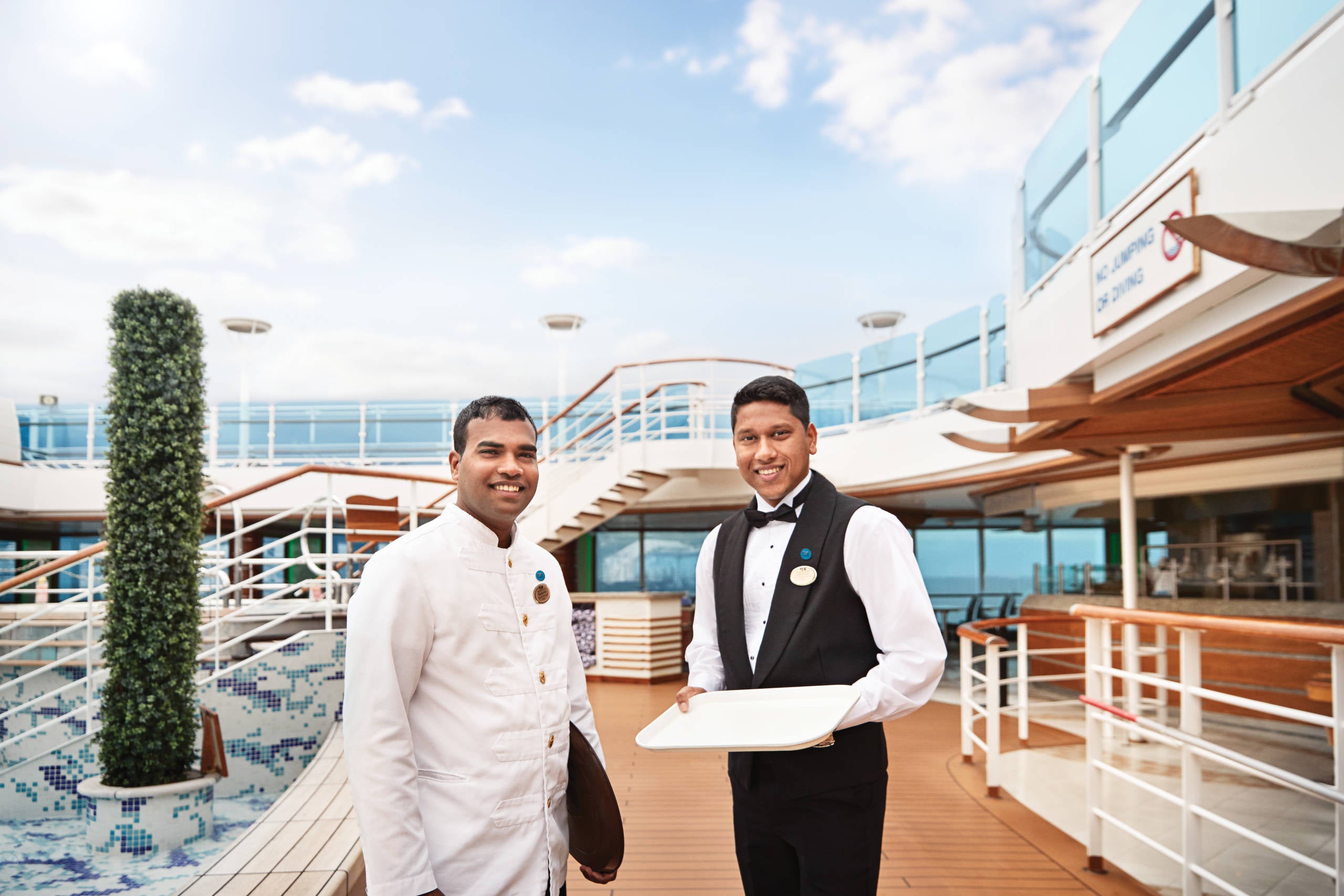Cruise industry executives like to boast that most people who cruise are highly satisfied with the experience, and the research backs them up. But that doesn’t mean every voyage goes perfectly.
On any given sailing, lots of little things can occur — slow service in a dining room or a tour that is more dud than delight — that can have an outsize impact on your experience.
Sometimes, these cruise ship problems are on a much bigger scale.
What should you do if your cruise experience doesn’t meet your expectations? Here is a look at the most common cruise ship problems people encounter and what you can do about them.
The most common cruise ship problems
As with land-based hotels and resorts, cruise lines receive many complaints about accommodations, especially regarding noise levels in cabin areas. Food quality issues are also a common topic.
Unlike land-based hotels and resorts, cruise lines also must deal with customer unhappiness about changes to itineraries sparked by weather situations. In the case of a hurricane in the Caribbean, for instance, it’s not uncommon for ships to alter course to avoid the storm, dropping or switching scheduled port calls in the process. Similarly, river cruise ships in Europe sometimes alter itineraries when low water levels make a segment of river unnavigable.
Who to talk to about a problem

On most cruise ships, the most public-facing member of the staff is the cruise director. This is the person you’ll see introducing onboard shows and leading activities. But this isn’t necessarily the person you should approach if you have a problem.
It’s often better to seek out the head of the department that is at the center of your complaint. If it’s a problem with your room, that’d be the chief housekeeper. If it’s a problem related to an onboard restaurant, you’d want the food and beverage manager. For billing issues, it’s the purser. They’re the people in the best position to fix the situation.
How do you find out who these people are? Here’s a hack: Just about every ship has a wall in a prominent public area with photos of top officers and department heads. You can find the name of the right person there. Or you can ask for the right person at the front desk and then ask to set up a meeting with that person to address your complaints.
Related: Why you should use a travel agent to book a cruise
If speaking to a department head doesn’t do the trick, the next step would be to go to the ship’s hotel director or one of their assistants. Other than the captain, the hotel director typically is the top-ranking executive on any vessel and is in charge of all the “hotel” operations, including housekeeping, dining and entertainment.
Don’t be shy about bringing up problems with the onboard staff. If you don’t bring up a problem with the ship’s staff while you’re on board, they won’t have the opportunity to fix it. And they’ll want to fix it. No cruise line wants an unhappy customer. It’s bad for business.
Which cruise complaints are valid
At some level, there are no complaints too nitpicky to bring up while on a ship. If a customer isn’t happy about something on a voyage, no matter how small, they should say something — as soon as possible.
“Every person has a different tolerance level [for perceived errors]. What is reasonable to one person is unreasonable to another,” Kristin Karst, co-owner of river cruise line AmaWaterways, told TPG in an interview several years ago, and the advice remains valid today.
As Karst noted at the time, cruise lines are eager to hear about issues early in a voyage so they can make it right. “The guest should have a fantastic time on board — the time of his or her life,” she said.
Karst recalled a passenger a few years ago who was unhappy his ship didn’t serve a gluten-free beer. While seemingly a small thing, it was important to this customer, and she’s glad he spoke up. The ship sent a crew member out at the next stop to purchase gluten-free beer to have on hand for him, and what could have turned into a bad experience for him became a positive one. The line has since started carrying gluten-free beer on every voyage.

Sometimes, however, the issue is beyond the line’s control. Karst said one of the most common complaints that AmaWaterways staff members hear from passengers is that other vessels are docking too close to their ship, blocking the views from their cabin windows.
Karst said there wasn’t much the line could do to fix the situation other than to explain that its ships don’t have control over which vessels dock near them. They’ll also point out that the number of hours on any given voyage where a ship is docked next to another ship is relatively small.
Some complaints clearly are more valid than others. If there’s a problem with the plumbing or air conditioning in your room, it’s completely reasonable to make a complaint, cruise executives have told TPG. If you don’t like the decor of the room, making a complaint is less valid. The latter is something you could have researched in advance before booking.
Or to put it another way, a valid complaint is when the cruise line doesn’t deliver the service level or vacation components promised before purchase. An invalid complaint is when a customer personally does not like something.
What to ask for when things go wrong
Many small mistakes, such as a room going uncleaned or the slow delivery of room service, can be rectified quickly if brought to a manager’s attention. Other things are harder to fix.
Unhappy with your room? Getting an upgrade to a better one is often difficult, as the business model of cruising revolves around ships sailing full. Often, a ship won’t have even a single cabin open to which you could move.
That said, it doesn’t hurt to ask, particularly if your complaint concerns a functional element of the room and is not related to its size or decor. In such a case, a cruise line will do whatever it can to make things right.
AmaWaterways’ Karst said she once was on a trip on the Mekong River in Cambodia when she noticed a couple who seemed unhappy. She asked if they were OK, and they mentioned that the air-conditioning system in their suite wasn’t keeping the room as cool as they liked. It was exactly the sort of situation where someone should speak up, she said, and the line did its best to make things better.
Since the ship was sold out and no other room was available, Karst offered the couple her own room, where the air-conditioning system worked much better. Since it was a lower-level cabin, she also refunded the couple for the difference in fare between the cabin types, and she called ahead to the hotel where the couple was staying after the sailing to have them upgraded to a better room.

While expensive, such gestures make sense to cruise companies looking to create long-term loyalty, Karst said. The couple, she notes, went on to become frequent customers.
“They have since done every river cruise we offer,” Karst said. “They have become almost like family friends for us now.”
Travel agents who specialize in cruising tell TPG that cruise lines generally are good about owning their mistakes and going the extra mile to keep customers happy. In addition to fixing a situation when something goes wrong, that often means a little token of appreciation as well as an apology.
For something minor, a guest might find an extra treat in their cabin. For something more serious, financial compensation might be offered.
In the case of an altered itinerary, cruisers might be surprised to learn that cruise lines are under no obligation to offer compensation. The fine print in cruise contracts explicitly notes that lines have the right to make changes to itineraries as needed.
That said, lines sometimes do offer passengers some form of compensation when itineraries change, even when the situation is beyond their control.
When a cruise is canceled completely, customers can expect a full refund, a credit for airline change fees and a future cruise credit of some sort.
TPG recommends that would-be cruisers buy travel insurance to cover any extra costs they might incur if a cruise goes significantly awry or is canceled.
Planning a cruise? Start with these stories:
- The 5 most desirable cabin locations on any cruise ship
- A beginners guide to picking a cruise line
- The 8 worst cabin locations on any cruise ship
- The ultimate guide to what to pack for a cruise
- A quick guide to the most popular cruise lines
- 21 tips and tricks that will make your cruise go smoothly
- Top ways cruisers waste money
- The ultimate guide to choosing a cruise ship cabin




